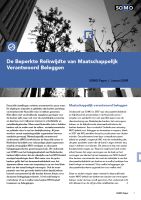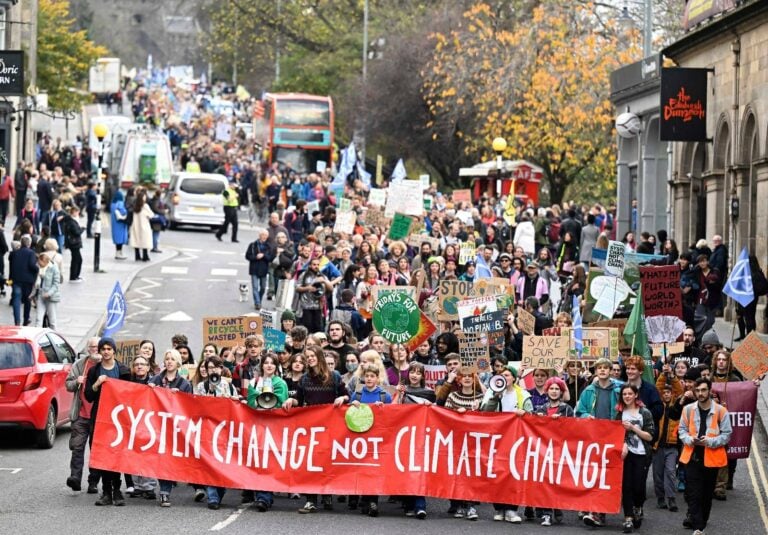
Socially responsible investment
The financial world is in the middle of a crisis. In recent years, banks took irresponsible financial risks with far-reaching negative consequences for confidence with the financial sector itself as well as among consumers. Apart from financial risks, banks are also faced with environmental, socio-economic and political risks. New research by SOMO into the investments of the five biggest Dutch retail banks and two sustainable banks shows that, despite the large-scale sustainability reports and the wide choice of sustainable investment products, socially responsible investment is still in its infancy at the major Dutch banks.
The banks ING and ABN AMRO, for example, with more than one trillion euros on their balance sheets, invested only half a percent or less in responsible investments in 2007. The sustainable banks Triodos and ASN Bank invest 100% sustainably. Due to the limited size of their capital, however, the extent of their sustainable investment in the Netherlands in 2007 was limited to 3.2%.
The major Dutch banks have all established extensive policy in the area of corporate social responsibility. SOMO research has revealed, however, that this policy is barely applicable to investments and not at all to investments which the banks are managing for their clients. All banks offer their clients the option of sustainable investment. But should clients be given the option, as is now often the case, to invest in companies which are involved in human rights violations in Sudan? And what proportion does this bear to the general human rights policy of banks? According to SOMO researcher Roos van Os, “ING, for example, has indicated that it endorses the Universal Declaration of Human Rights and wants to respect human rights in all its global activities. Why then is a large proportion of the investments excluded from this?”
The Dutch government is hesitant to regulate the CSR performance of banks and other businesses and puts a great deal of faith in the self-regulatory capacity of the market. Due to the limited application of CSR policy in the financial sector, it is very difficult for consumers who want to base their choice of a specific bank on CSR policies and sustainable performance to determine what exactly is the scope and application of this policy. Transparency on the part of banks regarding the scope and application of their policy is also essential in order to be able to evaluate the banks’ current sustainability policy in practice.
The SOMO report on socially responsible investment can be found here(opens in new window) (only available in Dutch)
Related news
-
Why share buybacks are bad for the planet and peoplePosted in category:Opinion
 Myriam Vander StichelePublished on:
Myriam Vander StichelePublished on: Myriam Vander Stichele
Myriam Vander Stichele -
 The Netherlands: European champion share buybackPosted in category:Long read
The Netherlands: European champion share buybackPosted in category:Long read Rodrigo FernandezPublished on:
Rodrigo FernandezPublished on: -
 The trillion-dollar threat of climate change profiteersPosted in category:Long read
The trillion-dollar threat of climate change profiteersPosted in category:Long read Myriam Vander StichelePublished on:
Myriam Vander StichelePublished on:

